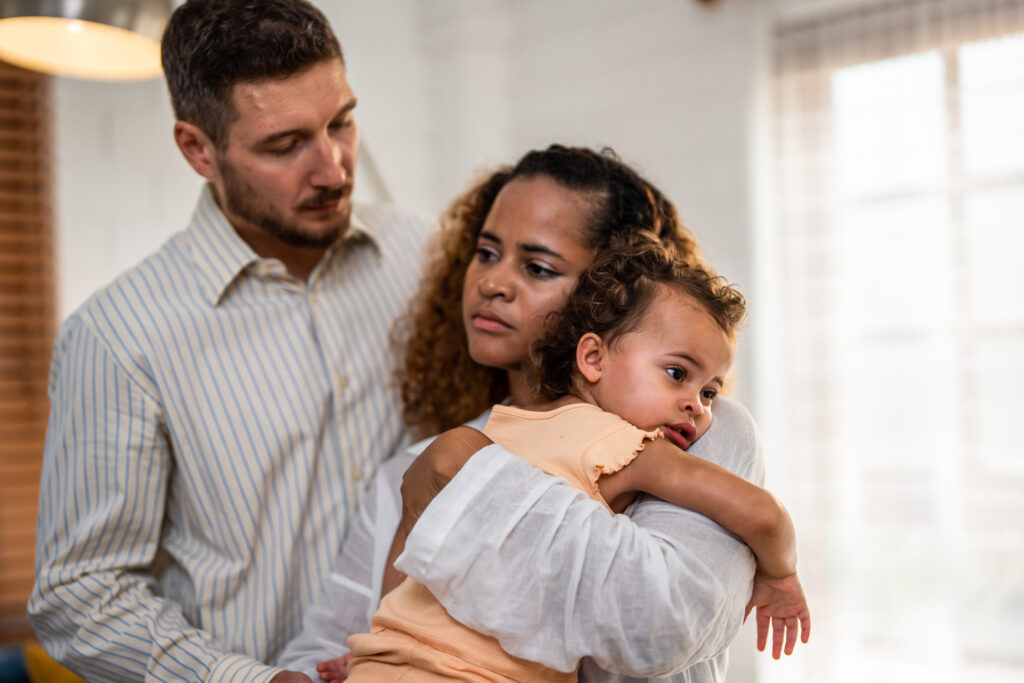September 9, 2025Author: Demian McGarry
September 9, 2025Author: Demian McGarry

Child custody is often the most emotionally charged part of a separation or divorce. In Washington, D.C., many parents come into the process asking, “How long will this take?” The answer depends on multiple factors — including the complexity of the case, court availability, and whether the parents can agree outside of court.
This guide walks you through what to expect in a D.C. custody case, from the moment you file to when a final order is issued. Whether you’re starting the process or already in the middle of it, understanding the timeline — and where delays typically happen — can help you make better decisions and protect your child’s best interests.
There’s no one-size-fits-all answer, but most custody cases in Washington, D.C. take between six months to over a year to resolve. The actual timeline is influenced by:
Generally speaking, the more cooperative both parties are, the shorter the process. The more contentious the case, the more witnesses, the more experts–one can expect a long process.
To help clarify what to expect, here’s a step-by-step breakdown of the major phases in a D.C. custody case and how long each typically takes:
The process officially begins when one parent files a Complaint for Custody with the D.C. Superior Court’ Domestic Relations Branch.. This document outlines the relief being sought (legal custody, physical custody, visitation, etc.).
There are specific notices that must be contained in the Complaint for Custody that are found in D.C. Code Section 16-4602.09(e). Failure to include them may result in you having to start over or have your case dismissed.
Once filed, the petition must be served to the other parent. This must be done within 60 days, but most parties complete service within a few weeks using a process server or by certified mail return receipt requested or registered mail. If you choose to mail, you must file proof of delivery to Defendant.
The other parent has 20 days to file an Answer after being served. The court will schedule an Initial Hearing, usually within 60-90 days of the Complaint filing. This is not a trial, but a scheduling hearing to determine next steps. At the hearing, the court may:
If the parents agree on custody terms, the court may accept a Parenting Plan and issue a consent order, significantly speeding up the timeline.
D.C. courts often require parents to attend custody mediation, which is typically handled through the Multi-Door Dispute Resolution Division. Mediation usually occurs within 30–60 days of the initial hearing.
If parents can reach a temporary or final agreement in mediation:
If no agreement is reached, the case proceeds to discovery and trial.
In contested cases, the court may appoint a guardian ad litem to represent the child’s best interests, order a home sturdy or order a custody evaluation to assess the family dynamic. These evaluations include interviews, home visits, and sometimes psychological testing. Custody evaluations are performed either by the court’s Custody Assessment Unit (for home studies) or the Assessment Center of the D.C. Department of Behavioral Health (for forensic evaluations), and are free of charge if ordered by the court. Parties are free to hire a private professional at their own expense to perform a custody evaluation.
Custody evaluations often take 8 to 12 weeks to complete. This is one of the primary causes of extended timelines, but they can be critical in high-conflict cases.
A custody case may be expedited if an emergency is alleged. Generally, the court will consider evidence of the following situations to be deemed an emergency:
During discovery, each side gathers evidence such as:
Discovery can take several weeks to several months, depending on how much information needs to be exchanged and whether there are disputes about sharing documents.
Before a trial, courts typically hold status or pre-trial hearings to:
Many cases are resolved at this stage, often through attorney negotiation or continued mediation. Even if not resolved at this stage, settlement can occur at any time prior to trial.
If no agreement is reached, the case proceeds to trial. Custody trials in D.C. may last anywhere from 1 to 5 days, scheduled over multiple weeks depending on the court’s availability. Litigants should not expect that a multi-day trial will occur over consecutive days.
After the trial, the judge issues a Final Custody Order detailing:
A written order is usually issued within 30 days after trial.

While the above timeline offers a general estimate, several factors can accelerate or delay the process:
The D.C. Superior Court’s Family Court Division handles hundreds of cases at a time. Delays can happen, even in uncontested matters. Having legal counsel to navigate court procedures can help reduce unnecessary hold-ups.
In Washington, D.C., there are two primary custody distinctions:
Courts can award:
Disagreements over legal custody or major scheduling disputes can significantly lengthen the process. For example, if one parent seeks sole legal custody, the court may require additional evidence, evaluations, or witness testimony.
Here are practical steps parents can take to protect their interests and potentially shorten the custody process:
Track your involvement in your child’s life — school pickups, extracurriculars, medical appointments, therapeutic appointments and communication. This can help demonstrate active parenting.
Try to keep written records of all co-parenting communication. Emails or texts can later show cooperation (or the lack thereof).
If you and the other parent agree on key custody issues, consider drafting a Parenting Plan early in the process. Courts favor agreements made by parents over court-imposed solutions. Even a partial agreement may speed up the process and reduce costs.
Be prepared for mediation by understanding your goals but also identifying areas where you can compromise.
Legal representation from the start helps avoid mistakes, prepares you for each step, and positions you to reach resolution more quickly.
Need help getting started? Contact us today to speak with a custody attorney in D.C. who can help you move forward with confidence.
Every custody case is unique, but the sooner you understand the timeline, the better you can prepare. At Curran Moher Weis, we provide clear guidance and compassionate counsel to help parents throughout Washington, D.C. navigate custody disputes with confidence and care.
Whether you’re filing for custody, responding to a complaint, or trying to enforce an existing order, our team has the experience and insight to advocate for your child’s best interests.
Schedule a consultation today — and take the next step toward clarity and resolution.